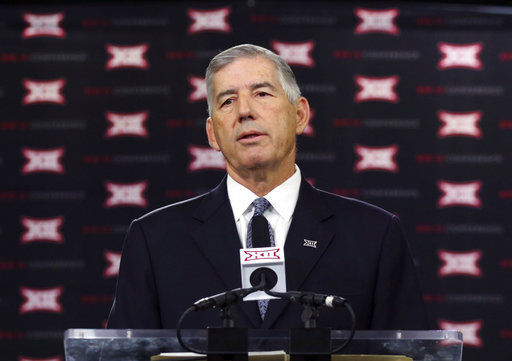Bowlsby talks about Big 12’s plan to move forward

WATERLOO – Bob Bowlsby understands the landscape better than most.
Before becoming the commissioner of the Big 12, the Waterloo, Iowa, native led athletic departments at Iowa in the Big Ten and Stanford in the Pac-12.
The conference Bowlsby has led since 2012 announced Wednesday that it plans to forge ahead with appropriate caution with a football season, hours after the two conferences he previously was a part of decided concerns over the COVID-19 pandemic outweighed playing the sport this fall.
Leaders of all three conferences, as well as those in the Atlantic Coast Conference and Southeastern Conference which have joined the Big 12 in continuing to pursue a fall football season, have relied on input from medical and scientific experts and researchers in the field of infectious diseases from across the country.
In many instances, leaders of multiple conferences are talking with the same experts and are receiving the same data.
But as was the case Tuesday when the Big 12 forged ahead and the Big Ten and Pac-12 stepped back, the presidents and chancellors making the ultimate decisions are making differing decisions based on their interpretation of information about the coronavirus.
“Reasonable people can disagree. The Pac-12 and Big Ten are seeing much of the same information that we’re seeing, but our Board of Directors believes in our scientists and has come to a different conclusion,’’ Bowlsby said.
He said league leadership in the three conferences he has been a part of has had a different tenor at time, some tending to be more conservative in its approach and some more aggressive.
Bowlsby sees a blend of personalities within the Big 12, but said the group works well together.
Ultimately, finding common ground and trusting the data and research at a given point in time led Big 12 presidents to choose to proceed while their peers in the Big Ten and Pac-12 were not ready to assume the accompanying risk.
“What we have heard from our experts is that some ramifications of the virus can be mitigated and properly managed,’’ Bowlsby said. “As long as that continues to be the case, they believe we can safely conduct competition and safely conduct practice.’’
Saying he has talked more than once a week with leaders of the other power-five conferences since the virus altered college sports last spring, Bowlsby said he is not surprised that conferences have come to different decisions.
